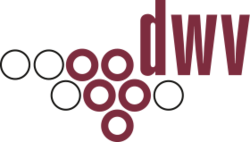Details
Conference Viticulture.Future.Danube Region: The future of organic viticulture - opportunities and risks
30 percent organic viticulture is demanded by Germany, 25 percent organic viticulture is demanded by the EU - is that realistic with the current circumstances, or as DWV-Vice President Thomas Walz put it as moderator of the panel discussion at the conference Viticulture.Future.Danube Region: The future of organic viticulture - opportunities and risks: "Do we have the right toolbox to make organic viticulture future-proof?" An exciting question, which the profession, politics and science dealt with intensively.
Due to climate change, viticulture in Europe is increasingly confronted with extreme weather events and weather conditions that are stable over longer periods of time. The consequences include long periods of prolonged moisture. Last year, this led to severe peronospora infections with, in some cases, extreme yield losses in numerous wine-growing regions in Central and Southern Europe. "There is basically a lot of interest in the profession to switch to organic farming. At the same time, the risks to profitability are seen due to the limited options for action because of the difficult framework conditions with regard to the application of plant protection products," says DWV-Vice President Walz. "It must be our goal to bring organic viticulture into the area, as demanded by the EU Commission."
After the presentation of the perspectives of organic viticulture by the EU-Commission and presentations of the situation of organic viticulture in various countries bordering the Danube, DWV Vice President Thomas Walz discussed with representatives of the profession (Jan Plagge, president of Bioland and IOFAM Europe as well as Milan Hluchý, president Ekovin Czech Republic), the Federal Ministry of Agriculture (head of department Dr. Burkhard Schmied), science (Hofrat Franz Rosner from the Federal Office for Viticulture and Fruit Growing) as well as with the MEPs Christine Schneider and Simone Schmiedtbauer from Austria.
There was agreement that the large-scale planting of new, more fungus-resistant grape varieties is part of a medium- and long-term strategy. However, sufficient planting material must be available for this. Furthermore, the sales opportunities must also be developed. It must also be taken into account that a conversion of grape varieties takes 30 to 40 years.
Against this background, the profession demands a sensible supplementation of the options for action of organic viticulture in plant protection. This could be done by a limited and time-limited or climatic condition-linked authorization of phosphonates in organic viticulture. At the same time, this represents a contribution to copper optimization and minimization. Forecasting models should also be further improved. Soil and plant protection, as well as economic and ecological sustainability for farms and the environment, must be reconciled.
MEP Christine Schneider addressed the individual impact on many farms as well as the consequences for the industry as a whole. "Without adapting the "toolbox", I see the danger that we will lose numerous organic farms. A long-term solution lies in vine breeding and the further development of PIWIS. In the short term, however, we must expand the possibilities in plant protection again!" MEP Simone Schmiedtbauer praised the unity and unity of the producers: "The challenges for all producers are great. Organic wine production is to be noticeably increased in the coming years. I am pleased that the winegrowers are willing to take this path to greater sustainability. Now it is up to the EU Commission and the member states to create the necessary framework conditions and, above all, not to disregard the economic component."
DWV-President Klaus Schneider expressed his satisfaction in his closing statement: "Organic viticulture is of high importance in all Danube riparian states due to the sustainability strategy of the EU. Contrary to the political will, the number of new organic farms is not increasing fast enough. There are good reasons for this and we are glad that we have succeeded in drafting a corresponding final resolution in which winegrowing associations from Germany, Austria, the Czech Republic and Hungary, as well as organic associations such as Ecovin Germany, Ekovin Czech Republic, Bioland and PIWI International, among others, participate. Now we have to approach politicians with this resolution." President Schneider's thanks also go in particular to Agriculture Minister Hauk, who had clearly advocated the reintroduction of potassium phosphonate at an event with the EU Commission at the end of last year: "Such broad unity among producers to secure the future of organic viticulture is unparalleled in Europe so far!"
DWV-Secretary General Christian Schwörer is also pleased: "With this project, we have succeeded in intensifying and further developing joint cooperation with the Central and Eastern European states." The project "Weinbau.Zukunft.Donauraum - Auswirkungen des Klimawandels auf den Weinbau" (Viticulture.Future.Danube Region - Effects of Climate Change on Viticulture), which was funded by the State Ministry of Baden-Württemberg, started in 2018, and this intensive exchange is to be continued even after the end of the project. DWV will gladly continue to act as a platform here.
Read the joint resolution here.
The German Winegrowers' Association, DWV for short, is the professional organization of German winegrowers. It represents the overall interests of its members vis-à-vis international and national institutions and organizations and is committed to promoting the professional interests of the German winegrowing community.


